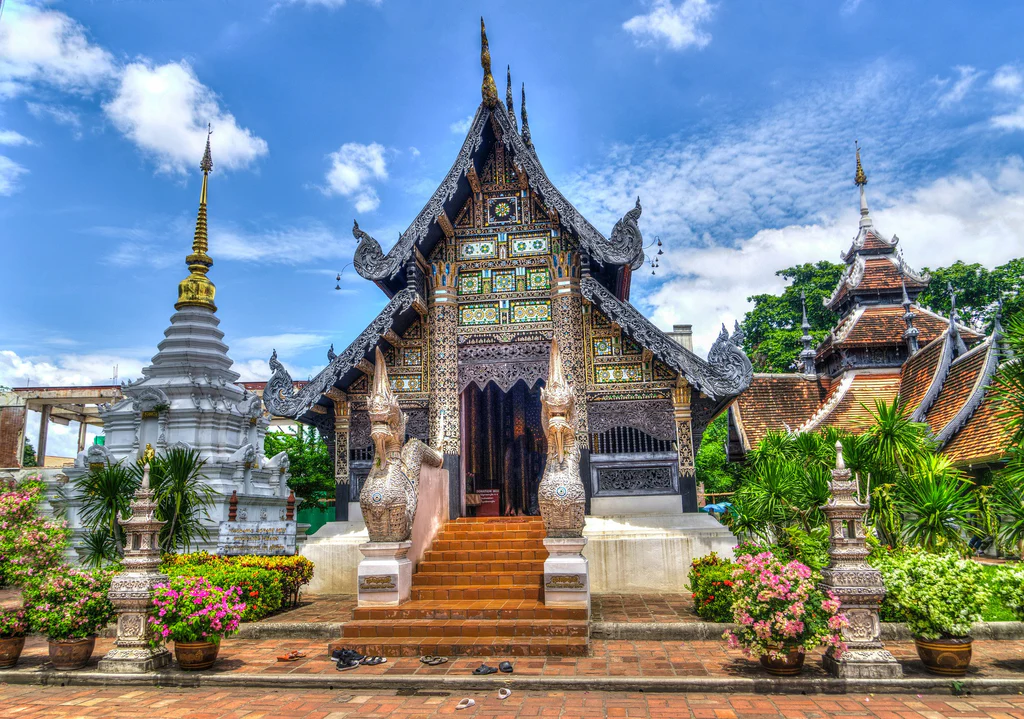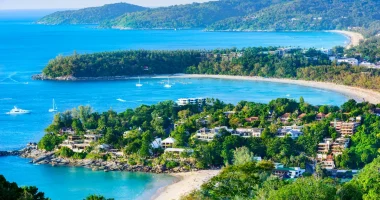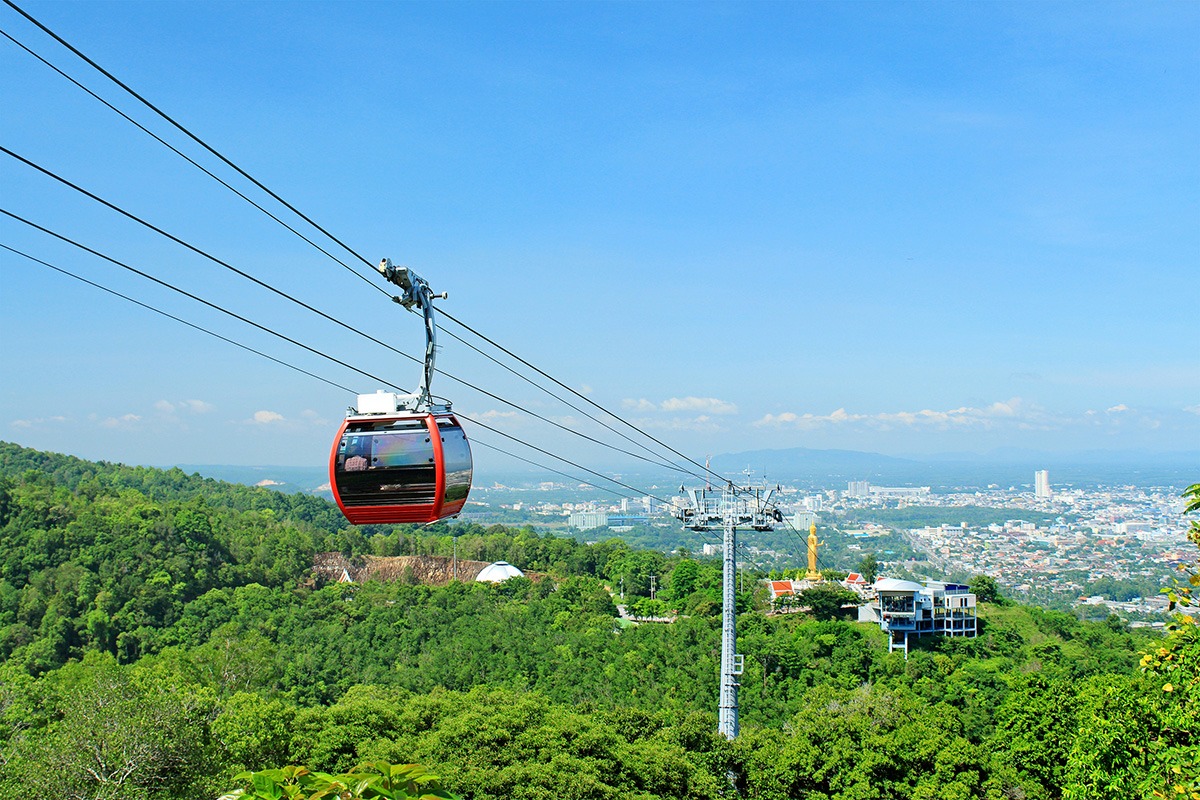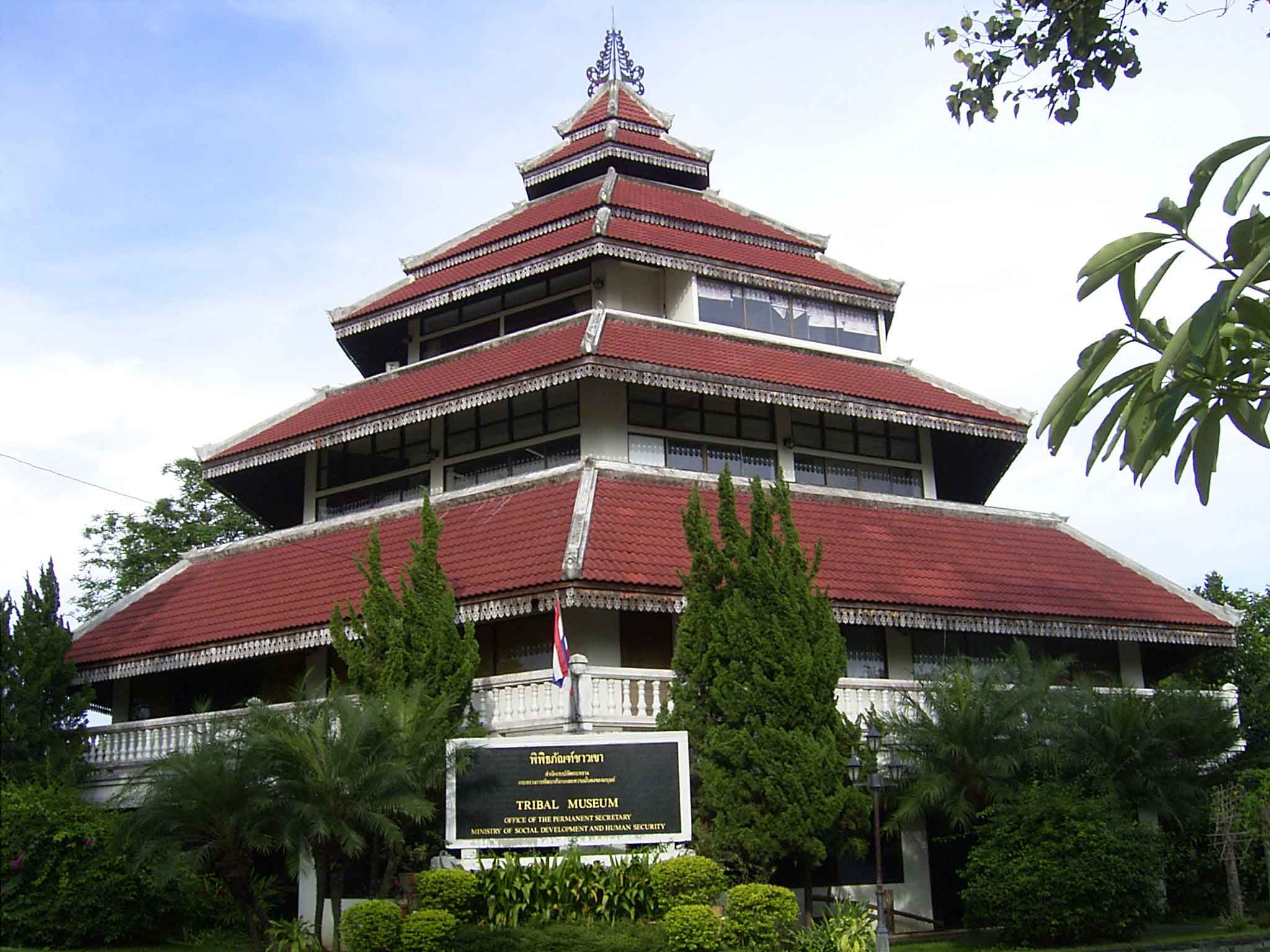Discover the Top Digital Nomad Cities in Thailand
Thailand has become a popular destination for digital nomads, offering a unique blend of culture, affordability, and modern amenities. With its vibrant communities, reliable internet, and stunning landscapes, it’s no wonder that many remote workers choose to make Thailand their home base. Here’s a guide to the 10 best cities in Thailand for digital nomads, including average living costs, attractions, and lifestyle benefits.
1. Chiang Mai
Average Living Costs
- Approximately $800 – $1,200 per month.
Why Chiang Mai?
Chiang Mai is often considered the ultimate destination for digital nomads. Known for its laid-back atmosphere and rich cultural heritage, this northern city offers a perfect balance of work and leisure.
Attractions
- Wat Phra That Doi Suthep: A stunning temple with panoramic views.
- Nimmanhaemin District: Trendy cafes and coworking spaces.
- Night Markets: Vibrant local markets for food and shopping.
Good Points for Digital Nomads
- Affordable accommodation options.
- Strong digital nomad community.
- Numerous coworking spaces with fast internet.
- Opportunities for networking and skill-sharing events.
2. Bangkok
Average Living Costs
- Approximately $1,000 – $1,500 per month.
Why Bangkok?
As the bustling capital of Thailand, Bangkok offers an urban lifestyle with endless entertainment options. It’s ideal for those who thrive in a fast-paced environment.
Attractions
- Grand Palace: A historical landmark.
- Chatuchak Weekend Market: One of the largest markets in the world.
- Rooftop Bars: Stunning views of the city skyline.
Good Points for Digital Nomads
- Extensive public transportation system.
- Abundance of cafes and coworking spaces.
- Diverse dining options from street food to fine dining.
- Active nightlife and cultural events.
3. Phuket
Average Living Costs
- Approximately $1,200 – $1,800 per month.
Why Phuket?
Phuket is Thailand’s largest island and offers beautiful beaches alongside a vibrant expat community. It’s perfect for those who want to combine work with outdoor adventures.
Attractions
- Patong Beach: Famous for nightlife and water sports.
- Big Buddha: A cultural landmark.
- Phi Phi Islands: Stunning day-trip destination.
Good Points for Digital Nomads
- Great internet connectivity across the island.
- Opportunities for outdoor activities like diving and hiking.
- Relaxed lifestyle with plenty of coworking spaces.
4. Koh Lanta
Average Living Costs
- Approximately $700 – $1,200 per month.
Why Koh Lanta?
Koh Lanta is known for its serene beaches and laid-back vibe. It’s ideal for digital nomads looking to escape the hustle and bustle of city life.
Attractions
- Klong Dao Beach: Perfect for relaxation.
- Lanta Animal Welfare: A great place to volunteer.
- National Park: Beautiful hiking trails and wildlife.
Good Points for Digital Nomads
- Affordable living costs compared to other islands.
- Strong digital nomad community with coworking spaces like KoHub.
- Peaceful environment conducive to productivity.
5. Ko Pha Ngan
Average Living Costs
- Approximately $800 – $1,500 per month.
Why Ko Pha Ngan?
Famous for its Full Moon Party, Ko Pha Ngan also offers quiet beaches and a growing community of remote workers.
Attractions
- Haad Rin Beach: Known for its vibrant nightlife.
- Than Sadet National Park: Offers beautiful nature trails.
Good Points for Digital Nomads
- Plenty of coworking spaces available.
- Diverse community events that foster networking.
6. Krabi
Average Living Costs
- Approximately $700 – $1,200 per month.
Why Krabi?
Krabi is known for its stunning limestone cliffs and beautiful beaches. It’s perfect for those who enjoy nature alongside their work routine.
Attractions
- Railay Beach: Renowned climbing destination.
- Hong Islands: Ideal for day trips and snorkeling.
Good Points for Digital Nomads
- Affordable living with various accommodation options.
- Reliable internet access in most areas.
7. Nakhon Ratchasima (Khorat)
Average Living Costs
- Approximately $600 – $1,000 per month.
Why Nakhon Ratchasima?
Nakhon Ratchasima offers a more authentic Thai experience away from tourist hotspots while still providing necessary amenities for digital nomads.
Attractions
- Khao Yai National Park: UNESCO World Heritage site with diverse wildlife.
Good Points for Digital Nomads
- Lower cost of living compared to larger cities like Bangkok or Chiang Mai.
8. Hua Hin
Average Living Costs
- Approximately $1,000 – $1,500 per month.
Why Hua Hin?
Hua Hin combines beach life with a laid-back town atmosphere, making it popular among expats and digital nomads alike.
Attractions
- Hua Hin Night Market: Great food options and shopping.
Good Points for Digital Nomads
- Good infrastructure with reliable internet access.
9. Chiang Rai
Average Living Costs
- Approximately $700 – $1,200 per month.
Why Chiang Rai?
Chiang Rai offers a quieter alternative to Chiang Mai while still being rich in culture and history.
Attractions
- Wat Rong Khun (White Temple): An architectural marvel.
Good Points for Digital Nomads
- Fewer tourists compared to Chiang Mai but still plenty of amenities available.
10. Surat Thani
Average Living Costs
- Approximately $600 – $1,000 per month.
Why Surat Thani?
Surat Thani serves as a gateway to some of Thailand’s most beautiful islands while offering a lower cost of living than more touristy areas.
Attractions
- Access to Koh Samui and Koh Phangan via ferry services.
Good Points for Digital Nomads
- Affordable lifestyle with good local markets and eateries available.
Embrace the Digital Nomad Lifestyle in Thailand
Thailand’s diverse cities offer something unique for every digital nomad. From the cultural richness of Chiang Mai to the beach paradise of Phuket, each location provides an ideal environment to work remotely while enjoying life. With affordable living costs, vibrant communities, and countless attractions, Thailand remains one of the top destinations worldwide for digital nomads seeking both productivity and adventure.









